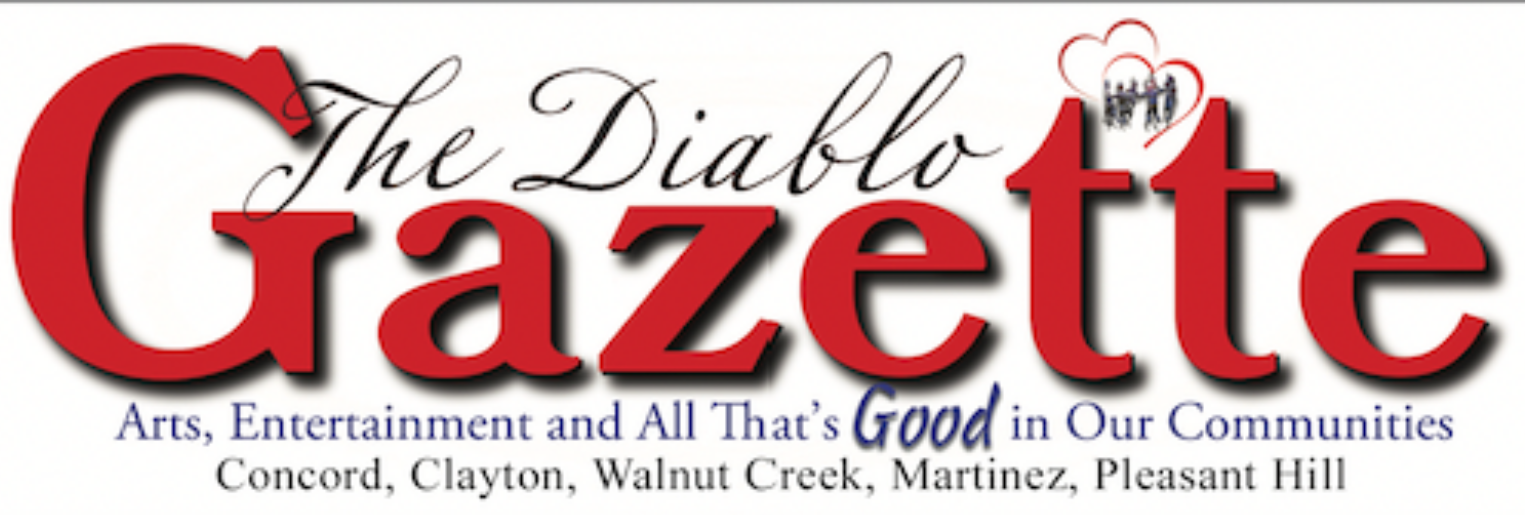Reports from my gardening and Diablo Gazette friends indicate that their vegetable and fruit harvests were amazing. At least something went right in 2020.
You have read over and over that there is no reason for poisonous insecticides and pesticides in an all-natural, naked garden. Why is that? The simple answer is that most of these toxic treatments are broad-spectrum, meaning they kill all creatures good or harmful. Also, store-bought insecticides are harmful to your pets, children, song birds, fish, and other domesticated and wild beings. Would you willingly do harm to honey bees, butterflies, Fido, Fluffy, or even little Tommy, just to put a bad hurt on your rose’s green aphids? Please don’t. Abandon chemical control for biocontrol.
Mother Nature offers small but beneficial friends that will help. She designed native plants, pollinators, and natural predators to thrive together. Now, the fall season is an excellent time to plan and plant for next year and avoid insecticides, fungicides, and herbicides. Think Natives, Pollinators, and Beneficials. Planting with these in mind is a great way to create a natural balance in your garden. Plant butterfly, bee, hummingbird and natural predator-friendly plants. How can we second-guess Mother Nature? These plantings are generally California natives or “cultivars”, horticultural varieties derived from them.
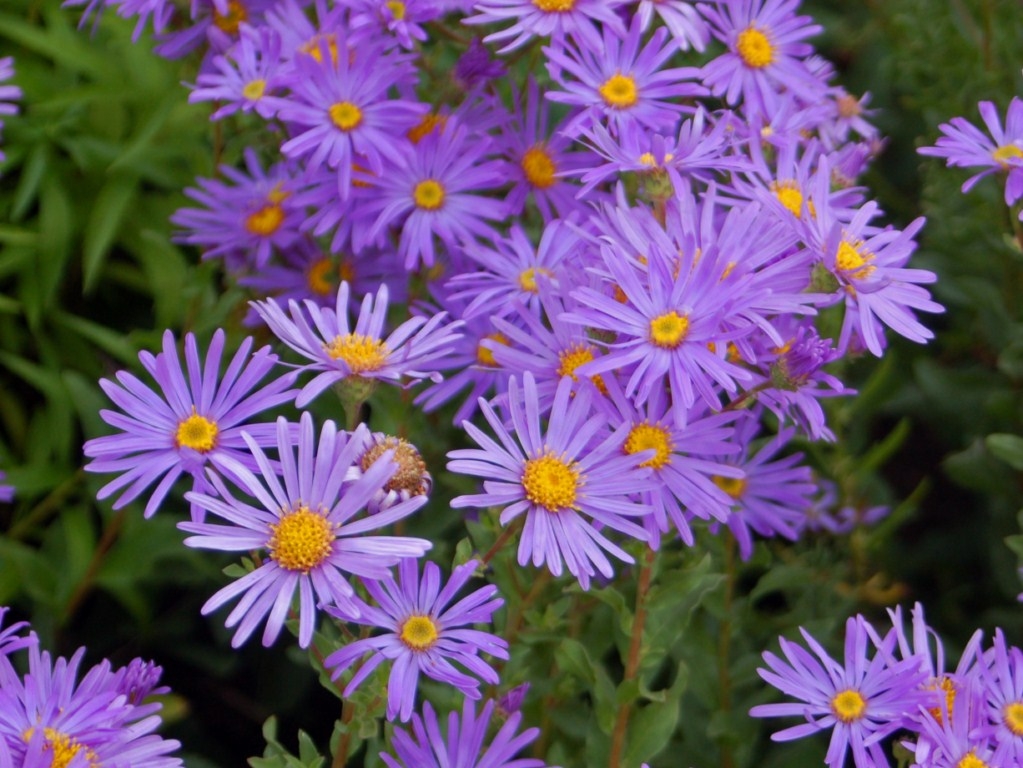
Here is a list of some of my favorite California native plants to attract pollinators and beneficial predators into my Contra Costa garden: Aster, Sage (salvia), Nasturtium, Penstemon, Golden Poppy, Jupiter’s Beard (centranthus), Garrya, Ribes (Currant) and Western Columbine (aquilegia). There are also many non-natives that also attract helpful bugs. The Butterfly Bush (buddleja – Asian native) is one that I prefer.
To ensure you have the best natural environment to attract pollinators and beneficial predators, there are some general gardening and landscaping practices you should follow.
Large spaces of singular plantings will result in abundant pollinator activity, but smaller single plantings will attract them as well. European honey bees, bumble bees, native bees, butterflies, and hummingbirds all like sweet-smelling and flowery plants. Consult with your favorite garden center staff to vary your plantings for year-round flowering.
The US Forest Service has an online guide called, “Attracting Pollinators to Your Garden Using Native Plants.” You can download and study it by following this link: https://www.fs.fed.us/wildflowers/pollinators/documents/AttractingPollinatorsV5.pdf. Following their gardening advice will also maximize beneficial predators.
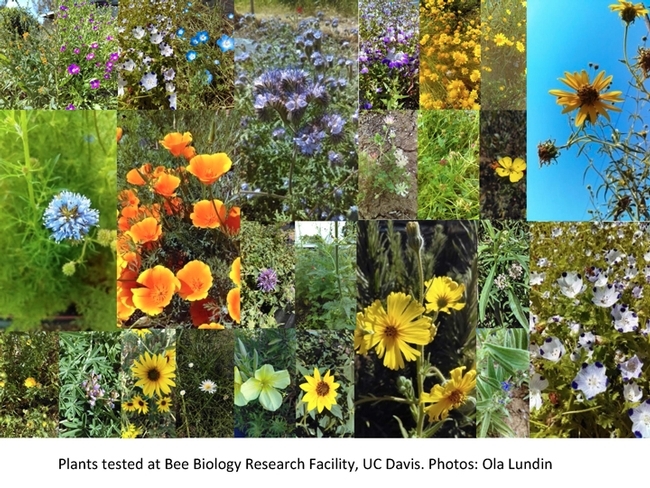
You have seen Ladybird Beetles (ladybugs) in your garden, right? Have you also seen their larvae, called “Aphid Lions”? We live in a bug-eat-bug world. The more ladybugs and aphid lions you find, the healthier your roses and other plants will be. They eat more than their weight each day in pesty aphids. I regularly see soldier beetles on my rose bushes in May scarfing up aphids as fast as they can. Some other great natural predators in Contra Costa are parasitic wasps, tachinid and syrphid flies, lacewing larvae, assassin, pirate, and damsel bugs. And do not forget about garden spiders, such as the orb weaver and crab spider. These creepy arthropods consume loads of mosquitos, flies, midges, and other biting and destructive pests throughout our warmer months.
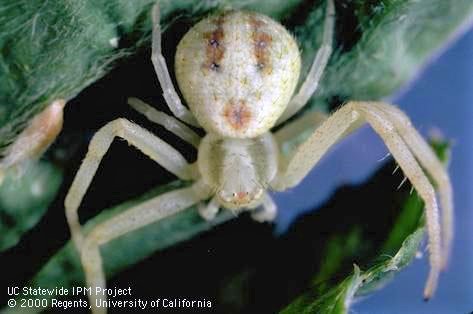
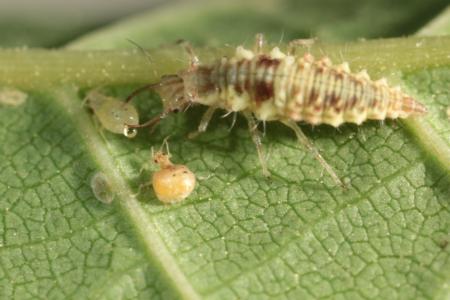
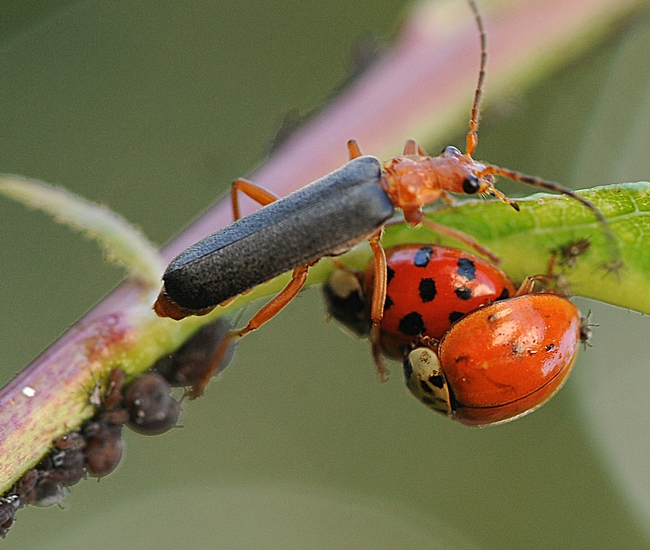
The UC Agriculture and Natural Resources (UCANR) program has studied the beneficial effects of natural predators for decades and has identified many small creatures that help control destructive pests. The system they developed to encourage natural pest control is called Integrated Pest Management (IPM). Their website offers detailed advice on who the beneficial bugs are and how to attract them to your garden. http://ipm.ucanr.edu/ .
So, how was your vegetable and fruit harvest this summer? I would love to hear (and see photos) of your gardening successes. Email those, your comments, and questions to: NakedGardener@diablogazette.com. In some cases, these may appear in future columns.

